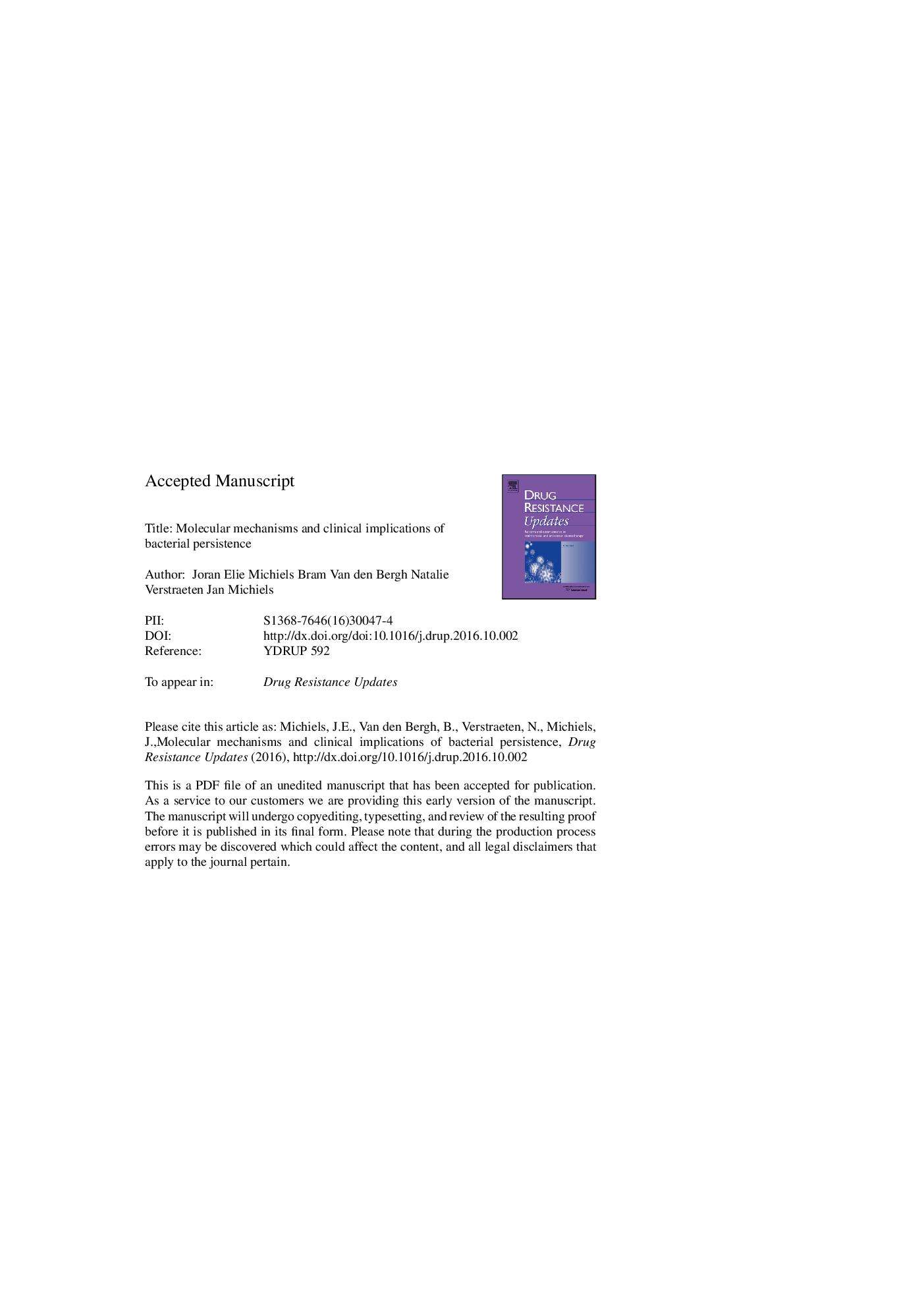| Article ID | Journal | Published Year | Pages | File Type |
|---|---|---|---|---|
| 8436652 | Drug Resistance Updates | 2016 | 57 Pages |
Abstract
Any bacterial population harbors a small number of phenotypic variants that survive exposure to high concentrations of antibiotic. Importantly, these so-called 'persister cells' compromise successful antibiotic therapy of bacterial infections and are thought to contribute to the development of antibiotic resistance. Intriguingly, drug-tolerant persisters have also been identified as a factor underlying failure of chemotherapy in tumor cell populations. Recent studies have begun to unravel the complex molecular mechanisms underlying persister formation and revolve around stress responses and toxin-antitoxin modules. Additionally, in vitro evolution experiments are revealing insights into the evolutionary and adaptive aspects of this phenotype. Furthermore, ever-improving experimental techniques are stimulating efforts to investigate persisters in their natural, infection-associated, in vivo environment. This review summarizes recent insights into the molecular mechanisms of persister formation, explains how persisters complicate antibiotic treatment of infections, and outlines emerging strategies to combat these tolerant cells.
Related Topics
Life Sciences
Biochemistry, Genetics and Molecular Biology
Cancer Research
Authors
Joran Elie Michiels, Bram Van den Bergh, Natalie Verstraeten, Jan Michiels,
